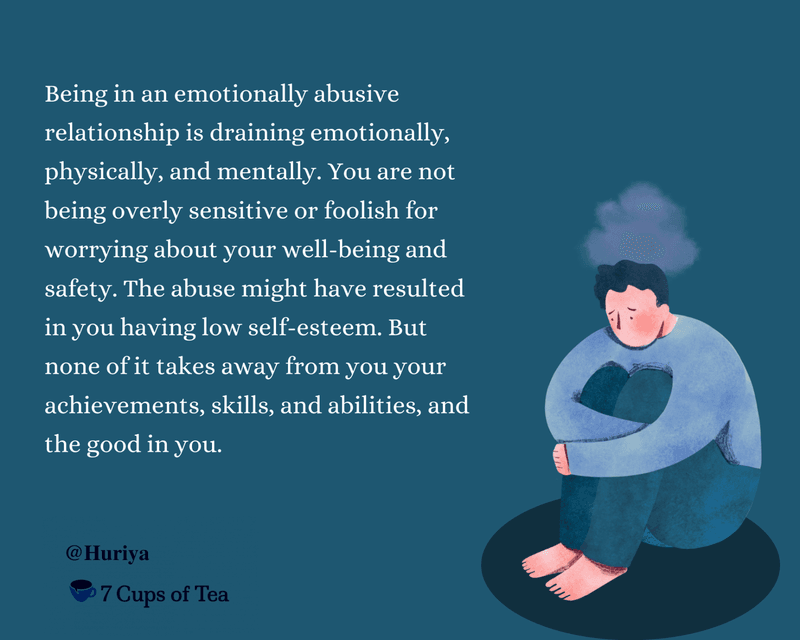Being raised in a controlling household can leave lasting effects on an individual’s life. This article explores twelve telltale signs that might indicate such an upbringing. Each item delves into specific behaviors, mindsets, or situations that those from controlling homes often experience. From needing constant approval to fearing conflict, these signs can manifest in various ways, affecting relationships, self-esteem, and decision-making. Recognizing these signs can be a step towards healing and understanding the past.
1. Overwhelming Need for Approval

The constant need for approval from others is a common trait seen in many who were raised in controlling households. Imagine always looking over your shoulder, seeking validation for every decision. This behavior can be exhausting and stems from a childhood where approval was tied to love and acceptance.
For instance, parents in such environments may withhold affection unless specific standards are met. Consequently, the child grows up equating approval with self-worth, often leading to anxiety. This relentless pursuit of validation can hinder adult relationships and personal growth.
Yet, understanding this need can be the first step towards breaking free from it.
2. Fear of Conflict

Growing up, many individuals from controlling households learn to fear conflict as it often leads to punishment or withdrawal of love. The mere thought of disagreement can trigger anxiety. This avoidance of conflict frequently results in suppressed emotions and unexpressed opinions.
In adulthood, this fear can manifest in difficulty asserting oneself in personal and professional settings. It’s challenging to maintain healthy relationships when one is constantly walking on eggshells to avoid disagreements.
However, realizing that conflict can be constructive is vital for personal empowerment and growth.
3. Difficulty Making Decisions

Imagine standing in front of a menu and feeling paralyzed by the simplest decision. Those raised in controlling homes often experience this. Decision-making may evoke uncertainty and self-doubt, primarily when choices were previously dictated by authoritative figures.
This struggle stems from a lack of practice in making decisions independently during formative years. In adulthood, this can lead to procrastination and over-reliance on others for guidance.
However, with time and effort, building confidence in decision-making can transform one’s life, allowing for greater autonomy and self-assurance.
4. Perfectionism

Perfectionism is a hallmark of growing up in an environment where excellence was the only acceptable standard. The internal pressure to meet these high expectations can be overwhelming.
In many controlling households, mistakes might have been met with harsh criticism, leading the child to strive for flawlessness. This relentless pursuit of perfection often leads to stress and burnout as an adult.
Recognizing that mistakes are part of learning and growth is essential. Letting go of unrealistic standards can open the door to self-compassion and creativity.
5. Low Self-Esteem

Low self-esteem frequently plagues those raised under controlling conditions. When love and acceptance are conditional, individuals may grow up feeling inherently unworthy.
The constant comparison to unreachable ideals can erode self-confidence over time. In adulthood, this manifests as a critical inner voice that undermines one’s achievements and capabilities.
Building self-esteem involves challenging these ingrained beliefs and embracing one’s unique strengths. Therapy and self-reflection can be powerful tools in this journey towards self-acceptance.
6. Inability to Say No

Saying ‘no’ can feel impossible for those raised in controlling households. Compliance was often rewarded, while defiance might have led to negative consequences. This ingrains a people-pleasing behavior that persists into adulthood.
The inability to assert boundaries may result in overcommitment and stress. Constantly prioritizing others’ needs over personal well-being can be draining.
Learning to say ‘no’ is a crucial skill for maintaining a balanced life. It empowers individuals to respect their limits and focus on what truly matters.
7. Guilt for Prioritizing Self

Guilt can overshadow moments of self-care for those from controlling backgrounds. Prioritizing personal needs may have been discouraged, labeled as selfish or inconsiderate.
This ingrained guilt leads to neglecting one’s well-being in favor of others’ demands. It’s vital to understand that self-care is not selfish but essential for a fulfilling life.
Embracing self-compassion and recognizing the importance of personal well-being can transform this guilt into growth. It’s about finding balance and understanding that one cannot pour from an empty cup.
8. Need for Control

Ironically, those raised in controlling households often develop a need for control in their own lives. It’s a coping mechanism derived from a lack of autonomy during childhood.
By micromanaging environments and routines, individuals attempt to create a sense of security. However, this need can become overwhelming, leading to stress and strained relationships.
Learning to embrace unpredictability and trust in one’s resilience is crucial. It helps to focus on what can be controlled, letting go of the rest.
9. Fear of Failure

The fear of failure is deeply rooted in those raised in controlling settings, where mistakes were often magnified. This fear can paralyze ambitions and stifle potential growth.
In such households, failure might have been met with severe consequences, leaving lasting impressions. As adults, this fear translates into avoiding risks and missing out on opportunities.
Reframing failure as a learning opportunity rather than a setback is essential. Embracing imperfection allows for personal and professional development.
10. Lack of Trust

Trust issues are common among those from controlling households. Continuous monitoring and undermining of one’s autonomy can lead to a deep-seated skepticism of others’ intentions.
This lack of trust affects relationships, making it challenging to form deep connections. It often results in a guarded demeanor and reluctance to open up emotionally.
Fostering trust begins with understanding its roots and gradually building confidence in others. It’s about recognizing that vulnerability can lead to stronger, more genuine bonds.
11. Overthinking

Overthinking is a common trait among those from controlling environments. This constant need to analyze every detail stems from fear of making the wrong decision or facing criticism.
Such households often emphasized meticulousness, leaving little room for spontaneity. As adults, this habit can lead to indecision, stress, and mental fatigue.
Breaking this cycle involves practicing mindfulness and focusing on the present moment. It’s about trusting one’s instincts and allowing for flexibility.
12. Difficulty in Setting Boundaries

Setting boundaries is a daunting task for those raised in controlling families, where personal space and autonomy were often disregarded. The fear of disappointing others can make it hard to assert limits.
Without boundaries, individuals may feel taken advantage of, leading to burnout and resentment. Recognizing the importance of personal space is essential.
Developing healthy boundaries takes practice and courage, but it ultimately leads to more respectful and fulfilling relationships. It’s about valuing oneself enough to say ‘no’ when necessary.

Mother of three and a primary school teacher. I’ve always loved being around children and helping them, so I chose my path as a teacher. It is sometimes hectic with three children, but I am 100 percent into it and wouldn’t change it for anything in the world.

